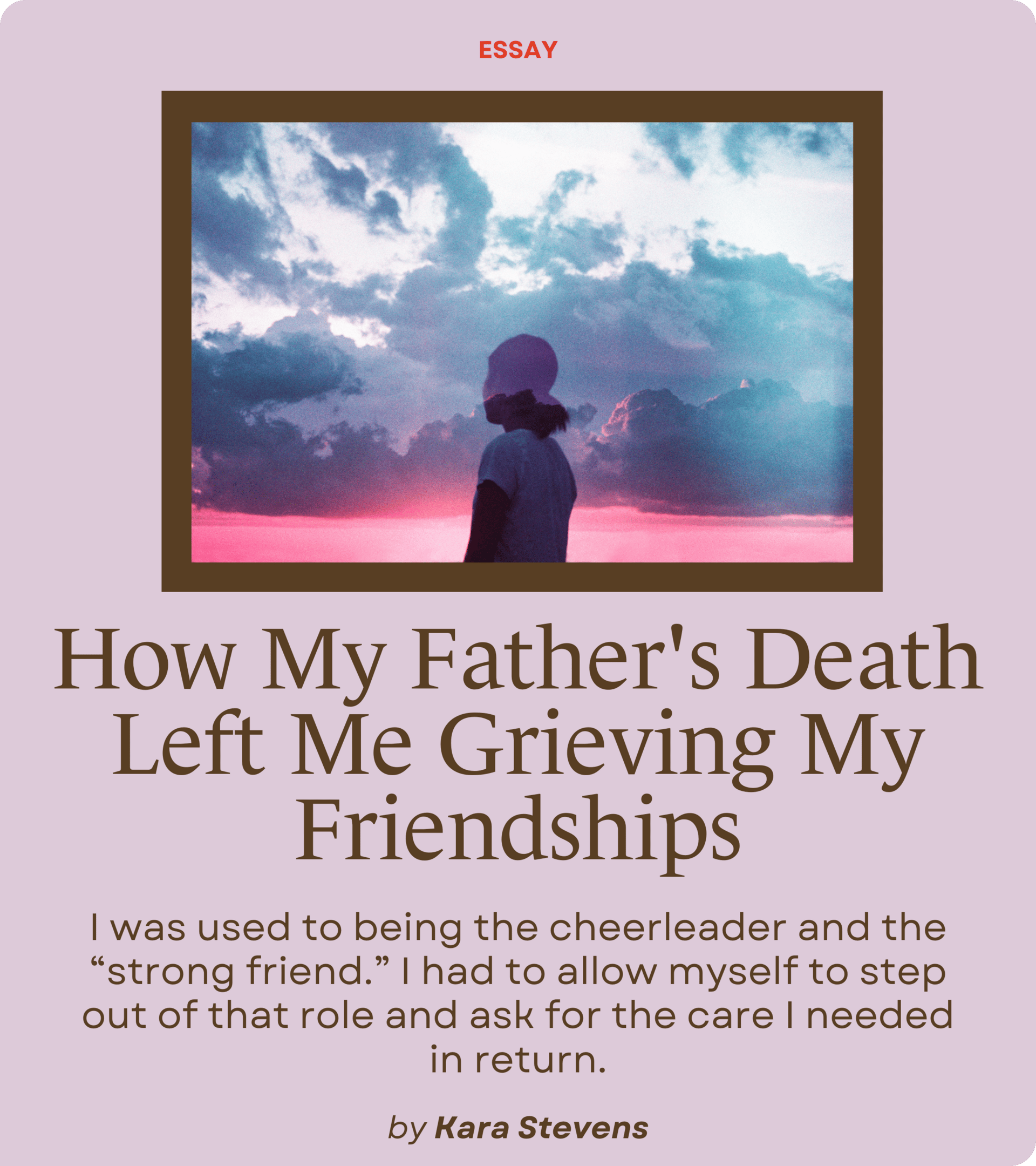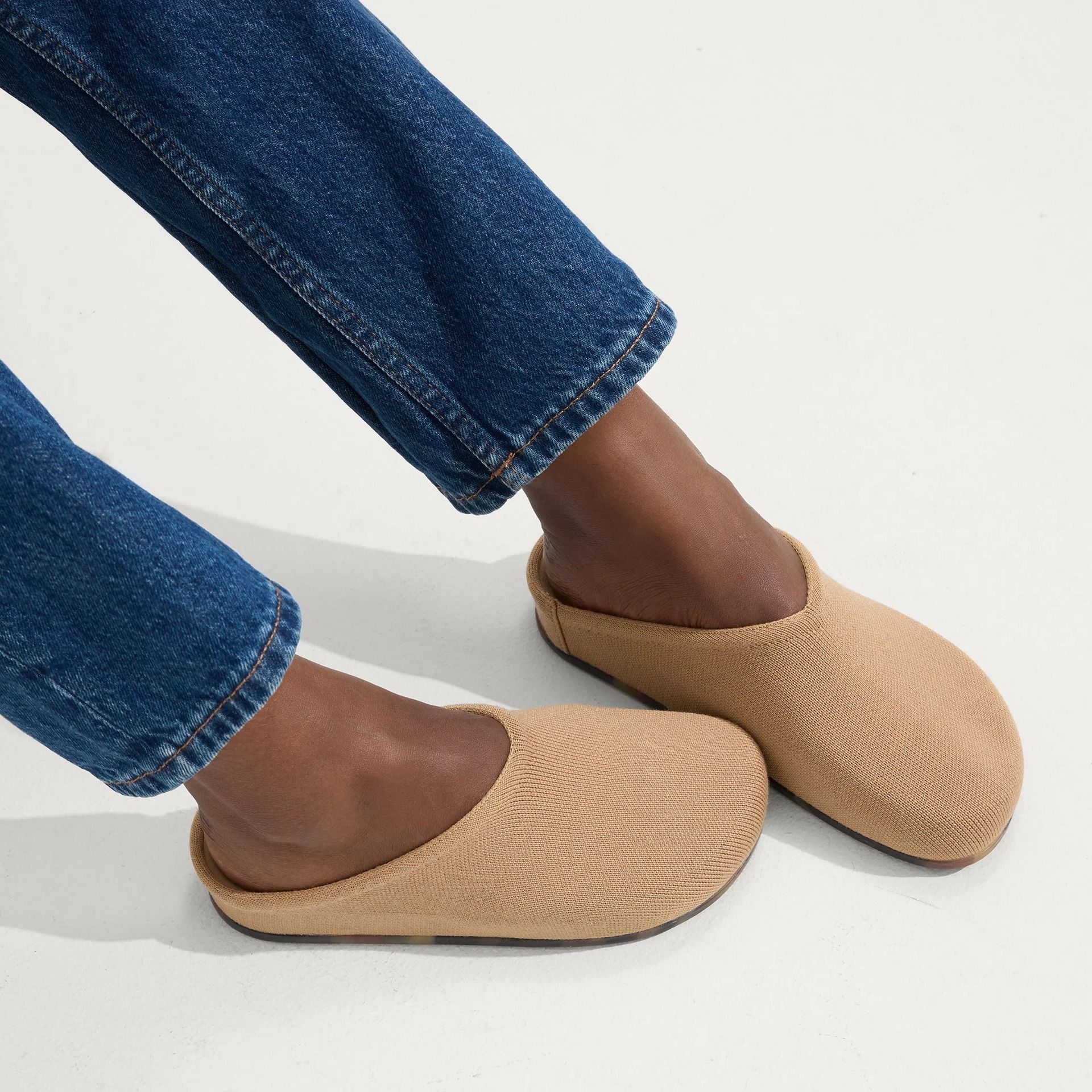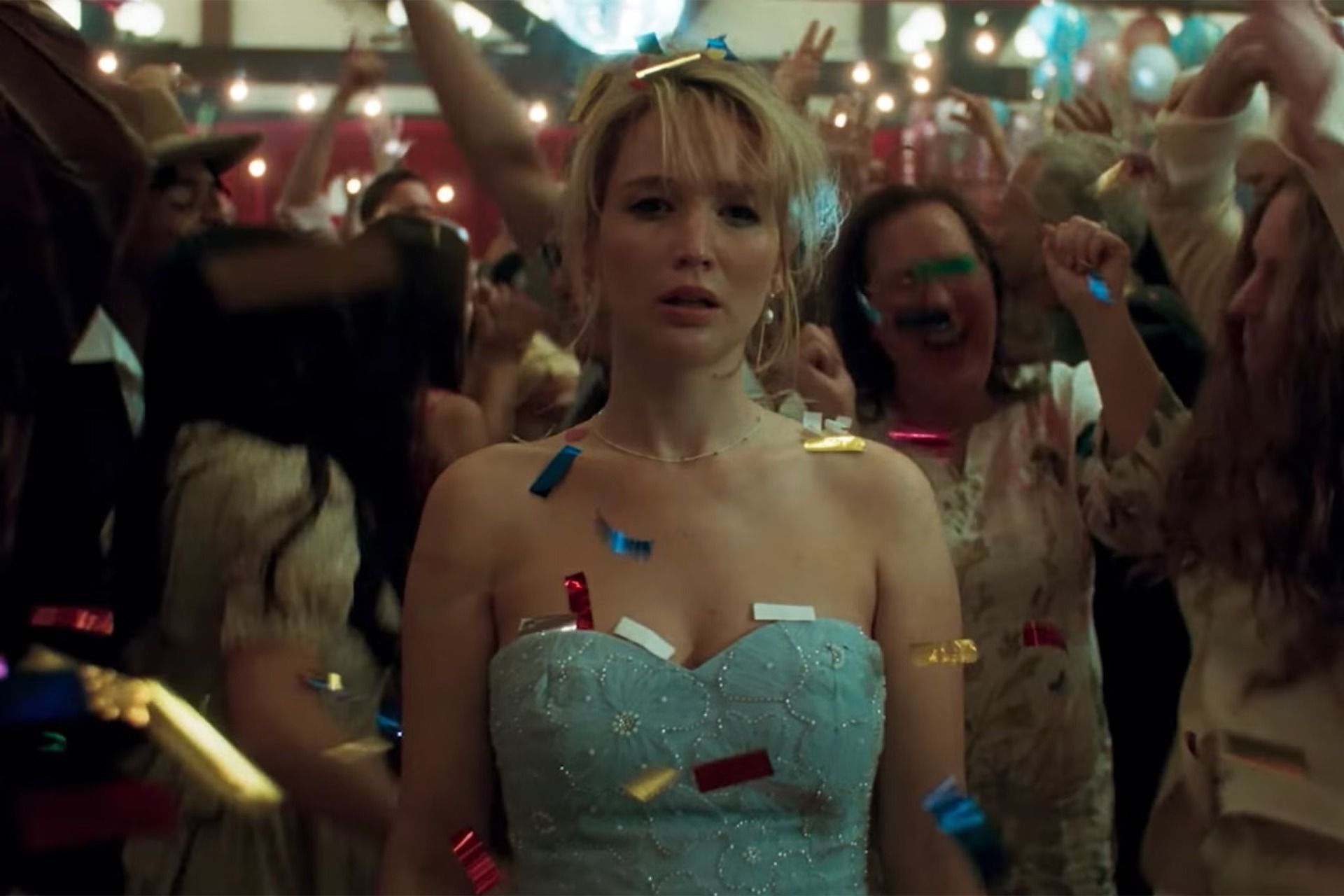- Gloria
- Posts
- A Friendship Struggle
A Friendship Struggle
Plus: a great new album, and more.

Hi friend,
If you live in New York City and don’t need to drive, you may not fully appreciate how big, pricey, and reliant on technology cars have become. That expense means people are getting their licenses and first cars at older ages than we did. And buyers are shouldering more car debt — to the tune of $1.66 trillion nationwide.
Now that many cars are essentially computers on wheels, they’ll also age differently than their analog predecessors. So realized writer and reporter Andrew Moseman, who for The Atlantic wrote about how his beloved Tesla will soon become “bricked.”
If cars are becoming more and more like iPhones, he says, they also “may become worse because the software is outdated, not because the parts break.” Carmakers can only build in room for so many software upgrades. But because software-stuffed cars are so new, it’s unclear how long they’ll last…whereas it used to be, with enough know-how, elbow-grease, and parts, most any car could be repaired.
We all know that iPhones don’t age well. But a car is an entirely new level of e-waste to reckon with. Expect more battles over right-to-repair laws.
We also do not know how long the chips for the massive data centers powering AI technology will last. Neither do the companies, apparently, as one Washington Post tech reporter noted in his takeaways from OpenAI CFO Sarah Friar’s remarks at this week’s Wall Street Journal Tech Live event. It could be anything from two to seven years, they need so very many of them, and they would appreciate it if the government could backstop the cost. (This was such a controversial disclosure that the company immediately tried to walk it back.)
A decade ago, when the tech industry was learning how to market wearables, they looked to the fashion industry for inspiration. While fashion has its own time-tested format for persuading people to buy (trends, social pressure, exclusivity), technology has managed to one-up it. After all, the gentle art of persuasion has nothing on brute-force strategies like obsolescence.
Bye,
Your friends at Gloria

Last October, I woke up to a flurry of texts in the middle of the night in Ghana from my older cousin Renee in New York, who had received word from another cousin, Trevor in California, that my estranged father, who lived thousands of miles away from all of us, in Antigua, was on his deathbed.
Hearing that my father, who was a few months shy of his 90th birthday, was possibly dying left me numb yet wrought with many deep, raw, and unexpected emotions of loss. I had loved and longed for my father from afar, and the unfinished business between us left me feeling angry, regretful, and cheated. I had to confront, and ultimately accept, that any sliver of hope I clung to for the reconciliation I desired — the proverbial father-daughter dance — would die, along with the other fantasies of requited paternal love once his coffin was lowered into the earth.
I lost my father a month later.
The music ended before I had the chance for the first and only dance. Lyrics from Luther Vandross’ “Dance with My Father” began to carry a new meaning: If I could steal one final glance/One final step/ One final dance with him/ I'd play a song that would never ever end/ 'Cause I'd love, love, love/ To dance with my father again.
Shortly after burying my father in Antigua and returning to Ghana, I found myself back in therapy. I had spent most of my adult life comfortable with the righteous rage aimed at my father, which was anchored in childhood wounds of neglect and abandonment. So, while it wasn’t surprising that his death affected me, the intensity of losing him was.
But as the months of therapy passed, I started to grapple with another sadness: that I was grieving in isolation. Relocating to Ghana had taken a toll on the quality of many of my friendships. Or, as I questioned in therapy, perhaps the physical distance was magnifying areas of the friendship that already needed repair.
Initially, I was reluctant to explore this sadness because I didn’t feel I had the right to. My friends had their own lives and struggles, and I had to manage mine. This reflection was reinforced by Dr. Norissa Williams, CEO and founder of Living Liberated, who notes, “In the West, there is an expectation that people would ‘get over it’ sooner than later. So there is not much communal space for individuals to move through their grief.”
But if I’m honest, part of it was also fear: fear of rocking the boat in my friendships. I was used to being the cheerleader, the “strong friend.” I felt I was relegated to “doing” — brainstorming, troubleshooting, and otherwise helping and offering support — but rarely allowed myself to step out of that role and ask for the care I needed in return.
“This is harmful to grieving people because grief really is, or can be, a lifelong process that involves the reintegration of self and the development of a new identity,” says Williams. “It can also be especially challenging for Black women, who have been plagued with the Strong Black Women Stereotype (SBWS), and have been the ones to nurture and offer strength to their friend group, to see themselves as someone who deserves or needs support.”
Williams also notes that in cases where “strong friends” explicitly indicate that they are struggling, they are “often left alone to fend for themselves, which is especially draining when they know they have been the ones to be there or give for their friends.”
This happened to me.
I sent texts and voice notes to let my friends know that I, actually, was not okay; in fact, I was drowning and needed care. In most cases, my text messages were left ‘on read,’ promises to schedule Zooms were unmet, and I spiraled further into grief, and now resentment.
At the advice of my therapist, rather than cut off contact, I sat in the discomfort and, over several sessions, reflected on what I wanted in friendships: what kind of friend I was, my patterns of communication, and what values surfaced for me as a result of losing a parent.
Most expressed that my friendship mattered to them and that the idea of me grieving alone was a lost opportunity to live in alignment with their values as people who saw themselves as good friends and decent human beings.
“Grief profoundly impacts friendships because it changes the emotional landscape of both the person grieving and their social connections,” says Ashley McGirt, MSW, LICSW, founder of The Therapy Fund Foundation. “Grief can make people more emotionally sensitive or introspective, and friends may not always know how to show up or what to say. This mismatch in emotional needs and expectations can strain even long-standing bonds.”
Doing ‘the work’ culminated in crafting individualized follow-up emails and voice notes, this time expressing my hurt and disappointment in feeling abandoned during one of the worst seasons of my life.
This was risky for me because I expected most of my friends to clap back. But thankfully, most didn’t. Some shared that they had regrettably dropped the ball because they were overwhelmed with life; others confessed that they were afraid of encroaching on my space; most expressed that my friendship mattered to them and that the idea of me grieving alone was a lost opportunity to live in alignment with their values as people who saw themselves as good friends and decent human beings.
These hard conversations helped accelerate my healing process. I was able to replace corrosive narratives of inadequacy with this new evidence — reclaiming my worthiness, centering transparency and honesty in friendships, and understanding the virtues of forgiveness and grace for the gifts they truly are.
In August of 2025, I booked a three-week flight back to the States and called it “The Summer of Love Tour.” The sole purpose? To love and be loved by friends, who I now saw as sisters. To see and be seen. To hold space and have space be held. To cackle and to “kiki.” To reflect on mistakes but also make memories.
As I moved across New York, Atlanta, Maryland, and DC — having dinners, hearing and sharing stories, and recommitting to journeying through life together — another truth surfaced, which I had once doubted but could now unequivocally affirm. As 1993 Nobel Laureate Toni Morrison wrote in her novel Beloved, “Love is or it ain't. Thin love ain't love at all.”
And I deserve it.


Rothy’s new slides are the kind of gift you buy for someone else, and then decide to immediately get it for yourself, too. Their soft signature knit is extremely comfortable, cute, and washable. We like this simple and minimal pair for around the house with sweats or PJs, but we're also eyeing this pair with a cool braided strap detail. They come a lot of lovely, neutral shades and all are cushy and easy to wear. Shop them here. #partner


Die My Love. Image via Mubi.
TO LISTEN De La Soul is back with an early holiday gift: a new single off their tenth album Cabin in the Sky, which is out in two weeks. It’s a new song but it’s got a familiar, nostalgic, retro sound. It’s also really good, which makes us excited to hear more.
TO TRY Your pet deserves a little something extra, and this pet rewards credit card gives you 3x rewards at the places you already spend the most — pet stores, groomers, and the vet. More rewards mean more treats, toys, and cozy nights together. It even comes with built-in pet insurance free, so they're covered if something unexpected happens. The only credit card made just for them. Check it out here. ** #partner
TO WATCH The new movie Die My Love is being described as career-defining for Jennifer Lawrence, who brings viewers into the suffocating realities of post-partum depression. There’s also a new Frankenstein out today on Netflix, from director Guillermo Del Toro, that’s gotten rave early reviews.
TO COOK This one-pan chicken and rice dish is delicious. Whizzing fresh herbs into a bright green sauce in a blender (to cook the rice in) is the extra step that really makes this special.
TO SHOP Forget what you know about underwire bras. The FreeFlex™ is about to change everything. Made with an innovative, carbonized flexible wire and wear-tested for more than 625 hours, our newest innovation provides unparalleled lift, separation and support. It’s everything you want from an underwire bra, without the pain of one. #partner

This story about why older Americans continue to work is sobering. • Is it really “uncool” to have lots of followers on social media now? • New research about how LLMS can perpetuate and amplify bias against older working women. • “The food stamps were running out, but no one told Nelly.”


*Gloria may receive an affiliate commission on purchases made through our newsletter.
**Nibbles is not a bank. The Nibbles Card is issued by Lead Bank. Fees and T&C apply.

Reply